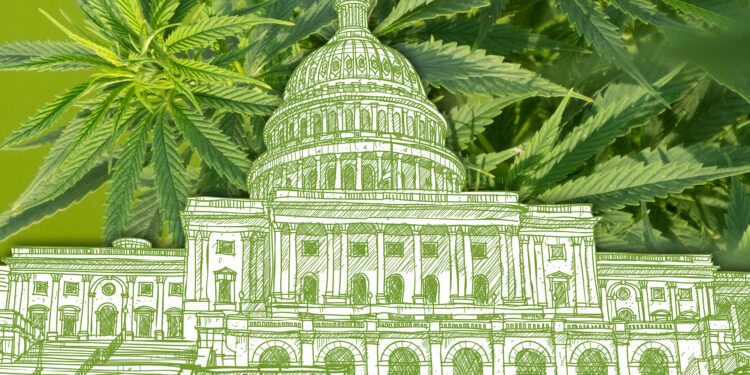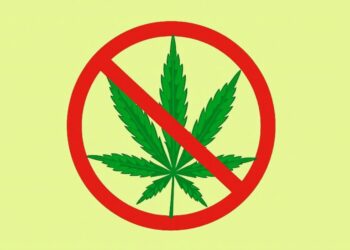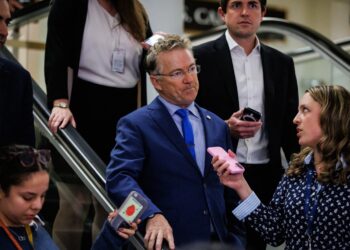House lawmakers have reignited controversy over cannabis policy in the nation’s capital, advancing a federal spending bill this week that continues to block Washington, D.C. from establishing a regulated marijuana market—despite local voters approving legalization over a decade ago.
The House Appropriations Subcommittee on Financial Services and General Government (FSGG) approved the bill on Monday, retaining a rider first championed by Rep. Andy Harris (R-MD) that prohibits D.C. from using its own local tax revenue to commercialize recreational cannabis. The provision has long been a flashpoint in the debate over D.C.’s autonomy and federal interference in local governance.
“I am outraged at the number and scope of anti-D.C. home rule riders in the bill released today,” said Del. Eleanor Holmes Norton (D-DC), who has repeatedly pushed for the rider’s removal. “D.C. residents deserve consideration equal to that given to [lawmakers’] own constituents.”
The relevant section of the bill explicitly bars both federal and D.C. funds from being used to legalize or reduce penalties related to Schedule I substances, including THC. That restriction continues to prevent the city from launching a regulated adult-use cannabis marketplace—despite voter approval of Initiative 71 in 2014.
The move drew sharp criticism from cannabis policy advocates and local leaders, especially given the absence of broader marijuana banking reforms in this year’s House appropriations package. A similar bill in previous sessions had included language to improve financial access for cannabis businesses, but it was omitted this time around.
While the District remains barred from fully commercializing recreational cannabis, local officials have expanded the city’s medical marijuana program in an effort to accommodate public demand. Still, unregulated gray-market gifting stores have proliferated, creating enforcement challenges and public safety concerns.
In contrast, the Senate Appropriations Committee recently advanced legislation with multiple cannabis- and psychedelics-related provisions—including protections for state medical marijuana programs and expanded access for veterans. However, the House bill’s inclusion of a provision restricting DOJ from rescheduling cannabis has alarmed reform advocates, though it was not mirrored in the Senate version.
With House and Senate versions of the appropriations legislation now diverging sharply on cannabis issues, final outcomes will depend on closed-door negotiations in the coming weeks. Until then, D.C. remains stuck in policy limbo—legal to possess, but illegal to sell.
Read the whole article from MarijuanaMoment here.













